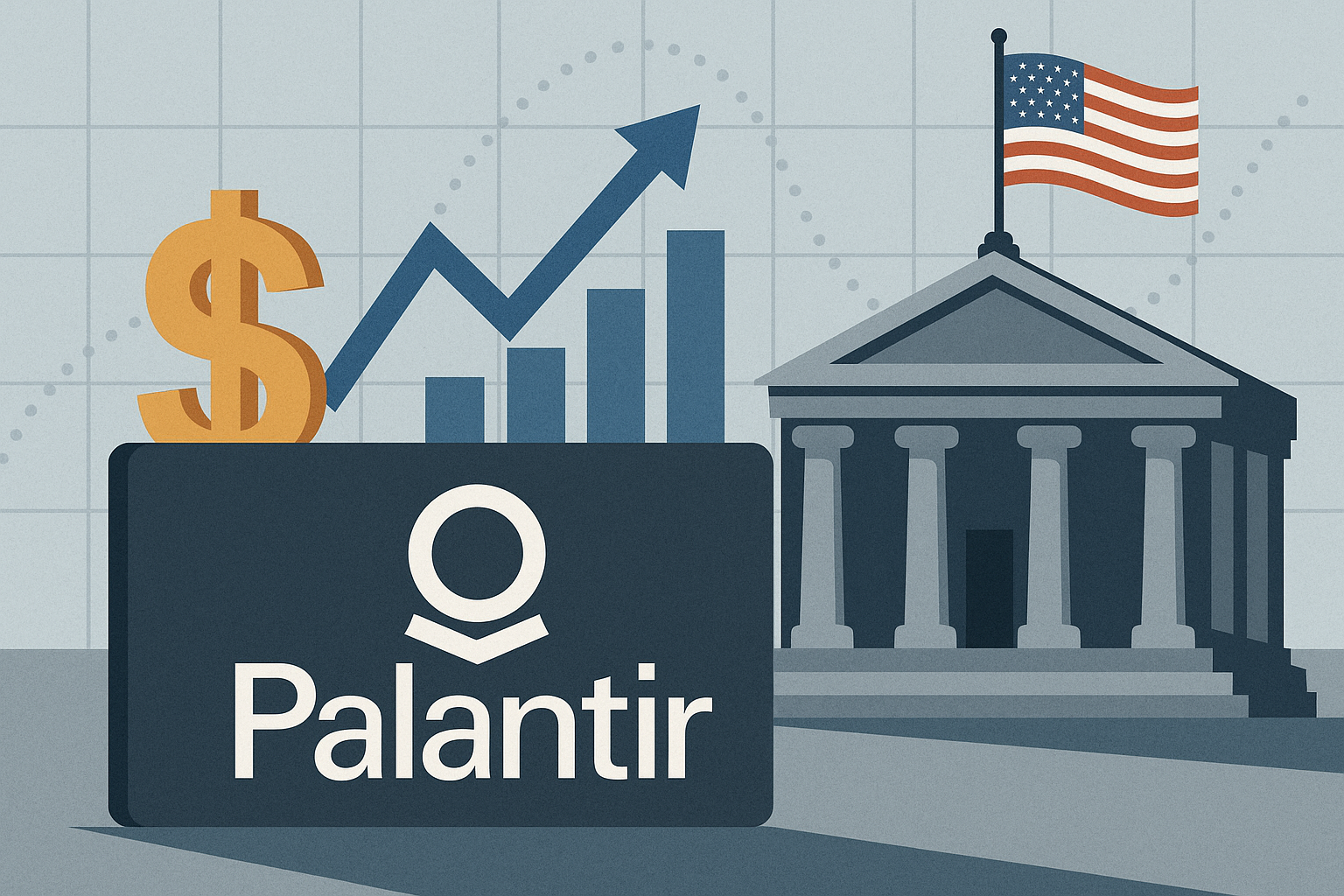
In the ever-evolving landscape of big data and artificial intelligence, few companies have attracted as much intrigue and debate as Palantir Technologies (NYSE: PLTR). Lauded as a pioneer in data analytics and decision-making software, Palantir’s close ties to government agencies—particularly those involving defense, intelligence, and public health—have become a defining feature of its growth strategy and financial narrative. As the company pivots towards broader commercial opportunities, the enduring significance of its government contracts remains a linchpin in both its current revenues and its long-term outlook.
The Bedrock of Palantir’s Revenue: U.S. Government Contracts
Since its founding in 2003, Palantir’s identity has been intertwined with government work. Its two flagship platforms—Gotham and Foundry—first gained traction within the U.S. intelligence community, particularly in the wake of 9/11, when the need for advanced data analysis tools surged. The Gotham platform, designed for counterterrorism and defense, became a staple for agencies such as the CIA, FBI, NSA, and branches of the U.S. military.
According to the company’s most recent financial reports, government contracts accounted for roughly 55% of Palantir’s total revenue in 2024, a testament to the enduring demand for its services across federal, state, and local agencies. High-profile deals, such as its $823 million contract with the U.S. Army to deploy its AI-driven TITAN battlefield intelligence platform, have become bellwethers for the company’s performance on Wall Street.
But the impact of these contracts extends beyond headline figures. Multi-year government deals—often involving renewals and expansions—provide Palantir with a level of financial predictability and cash flow stability that few Silicon Valley peers can match. This allows the company to reinvest in R&D, accelerate commercial adoption, and weather broader macroeconomic turbulence.
Diversification: From Defense to Health, Energy, and Beyond
Palantir’s foray into public health was thrust into the spotlight during the COVID-19 pandemic, when the U.S. Department of Health and Human Services selected its Foundry platform for tracking hospital resources and vaccine distribution. This move not only demonstrated Palantir’s agility but also opened the door to a new class of government clients in health, logistics, and crisis management.
Recent contracts with agencies such as the Centers for Disease Control and Prevention, the Food and Drug Administration, and even the United Kingdom’s National Health Service, further solidified Palantir’s position as a go-to provider of mission-critical analytics outside of defense. Meanwhile, pilot projects with the Department of Energy—helping optimize grid resilience and climate risk analysis—hint at an even broader set of government use cases.
This diversification is not merely about optics; it has meaningful implications for Palantir’s financial trajectory. Broader exposure reduces dependency on a single customer segment and helps insulate the company from shifting federal budget priorities or geopolitical tensions. The company’s recent 2025 guidance, which points to double-digit growth in government revenue, is underpinned by this expanded footprint across federal and international agencies.
The Competitive Moat: Why Governments Keep Coming Back
What sets Palantir apart from would-be competitors? For one, its platforms are purpose-built to ingest, analyze, and visualize vast troves of heterogeneous data—from satellite feeds to financial transactions to medical records. Government agencies, often saddled with siloed legacy IT systems, find immense value in Palantir’s ability to connect the dots across disparate datasets while maintaining strict security and compliance standards.
Additionally, Palantir’s business model leans heavily on “land and expand.” Initial pilot contracts frequently lead to broader deployments, multi-year renewals, and opportunities for cross-agency adoption. In an industry where trust, reputation, and security clearances are paramount, Palantir’s decade-plus track record gives it a formidable advantage.
However, this moat is not without its critics. Some watchdogs and lawmakers have questioned the opacity of Palantir’s government deals, the scale of taxpayer spending, and the implications for privacy and civil liberties. The company’s leadership, for its part, has maintained that transparency and ethics are core tenets of its engagement with public sector clients.
Risks and Dependencies: The Flip Side of Government Reliance
While government contracts offer stability, they also introduce risks. A change in administration, shifting policy priorities, or heightened scrutiny over defense spending could impact renewal cycles or future deal flow. Moreover, as Palantir’s largest customer by far, the U.S. government holds considerable leverage in contract negotiations.
International expansion brings its own challenges. Competing for government deals in Europe, Asia, or the Middle East often involves navigating complex regulatory environments, local competition, and rising concerns over data sovereignty.
Finally, Palantir faces the constant risk of being caught in the political crossfire—be it over defense budgets, privacy legislation, or even U.S.-China tensions. These factors inject a measure of unpredictability into what otherwise might seem like a stable revenue stream.
The Path Forward: Balancing Government and Commercial Ambitions
In recent years, Palantir has made a concerted push to grow its commercial business, targeting sectors like healthcare, finance, energy, and manufacturing. The company’s leadership has repeatedly emphasized that its future lies not just in government contracts, but in the broader enterprise world.
Still, for all the talk of commercial expansion, government work remains the backbone of Palantir’s financial health. The credibility, cash flow, and technical validation that come from serving demanding government clients provide a launchpad for growth in other markets.
As Palantir eyes the next decade, the company’s success will likely depend on its ability to strike the right balance: leveraging its government pedigree while accelerating adoption among Fortune 500 companies and global enterprises. Investors and analysts will be watching closely to see whether Palantir can maintain its government momentum without being boxed in by its origins.
Disclaimer: This article is for informational purposes only and does not constitute investment advice, a recommendation, or an offer to buy or sell any securities. Please conduct your own research or consult with a financial advisor before making investment decisions.




